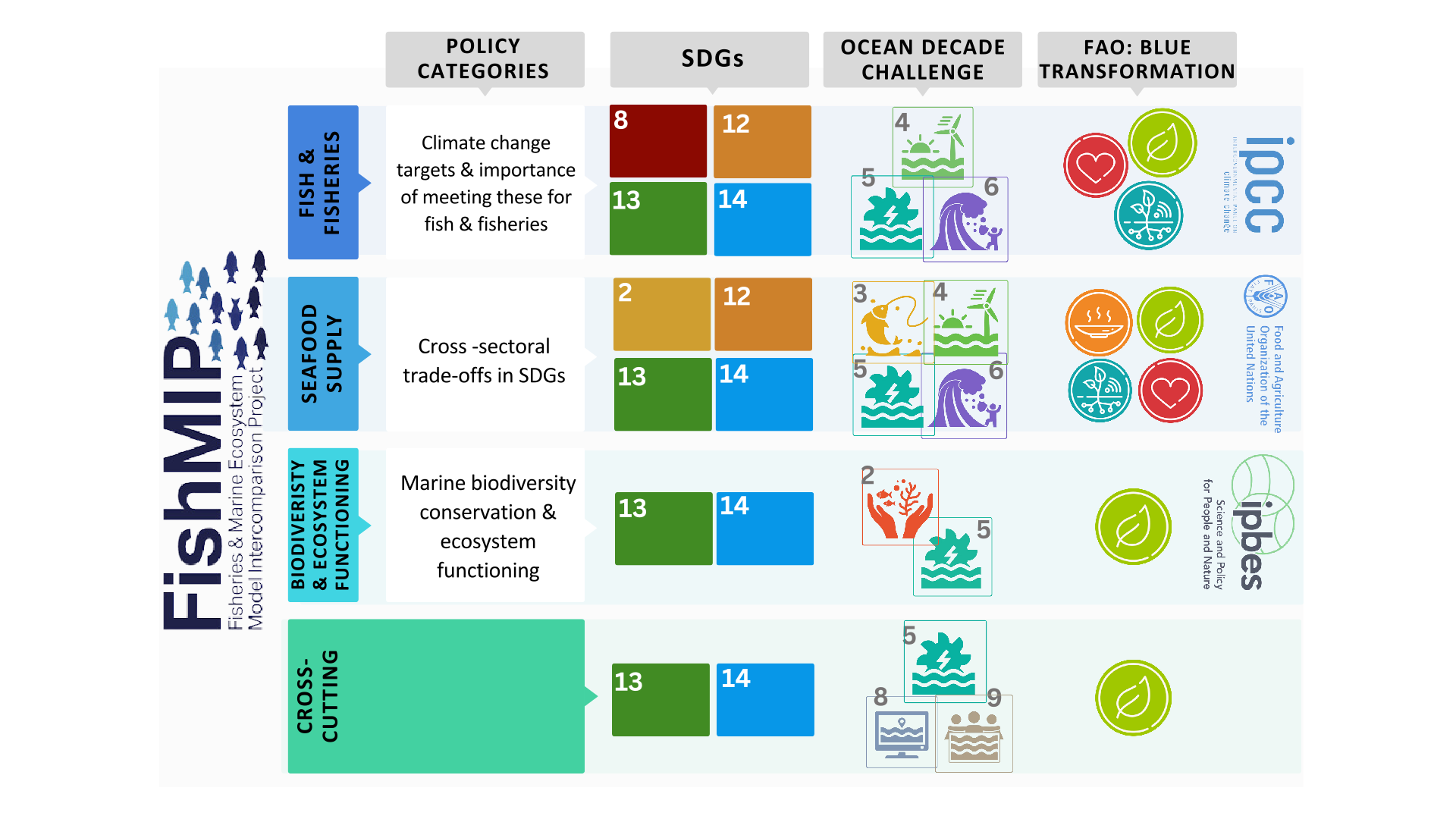Working Groups
To advance FishMIP 2.0, we are in the process of establishing several Working Group Projects with specific objectives:

WG1: Model improvement & data tools
The FishMIP Model Improvement Working Group is developing tools to assess the reliability of marine ecosystem model ensembles through advanced skill assessment techniques using global and regional observational datasets, ranging from fisheries catches and effort to fish abundance and biomass surveys, including novel data streams (e.g., satellite data, eDNA). This working group will also aim to reduce ensemble projection uncertainty by moving beyond a “model democracy” approach, develop an accurate and accessible FishMIP global model emulator, and develop tools to help build regional marine ecosystem model ensembles spanning a gradient of data-rich to data-poor regions.
Leads: Ryan Heneghan (r.heneghan@griffith.edu.au) & Daniël van Denderen (pdvd@aqua.dtu.dk)
WG2: Socio-economic scenarios
The Socio-economic Scenarios Working Group leads the development, implementation in models, testing and simulation of the Oceanic System Pathways (OSPs), a set of SSP-consistent scenarios of the future of fisheries, including a modelling framework for embedding market and fleet dynamics into ecosystem models, that will, amongst other objectives, help to address where adaptive fisheries management measures are most needed, and which measures can successfully lead to climate resilient fisheries.
Leads: Olivier Maury (olivier.maury@ird.fr), Derek Tittensor (derek.tittensor@dal.ca) & Tyler Eddy (tyler.eddy@mi.mun.ca)
WG3: Food security
The Food Security Working Group aims at translating and applying FishMIP results for use in climate change impacts, risk, vulnerability assessments on food systems and food security, with a focus on fisheries and aquaculture, but also including joint risks and trade-offs with other sectors (agriculture, wider questions about diets).
Leads: Camilla Novaglio (Camilla.novaglio@utas.edu.au) & Julia Blanchard (Julia.blanchard@utas.edu.au)
WG4: Biodiversity protection
The Biodiversity Conservation Working Group leads the development of modeling experiments that evaluate the extent to which Marine Protected Areas (MPAs) and other spatial conservation measures such as Other Effective Area-Based Conservation Measures (OECMs) can and will be able to contribute to marine ecosystem protection and restoration, in addition to exploring the impact of fisheries management decisions on marine biodiversity and ecosystem health. These modelling experiments will explore the role of MPAs and other area-based fisheries management strategies in enhancing biodiversity and strengthening ecosystems’ recreational value.
Leads: Andrea Bryndum-Buchholz (andrea.buchholz@mi.mun.ca) & Kelsey Roberts (kroberts3@lsu.edu)
WG5: Climate change mitigation
The Climate Change Mitigation Working Group explores the potential impacts of climate interventions on marine ecosystems, in an effort to add to the knowledge base around geoengineering impacts and hence inform decision- and policymaking with due consideration of potential impacts on ecosystem services, biodiversity, and food security in future climate scenarios.
Leads: Kelsey Roberts (kroberts3@lsu.edu) & Cheryl Harrison (chsharrison@gmail.com)
If you are interested in finding out more please contact WG leads or fishmip.coordinators@gmail.com